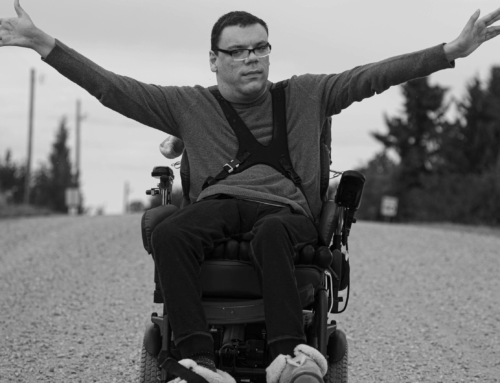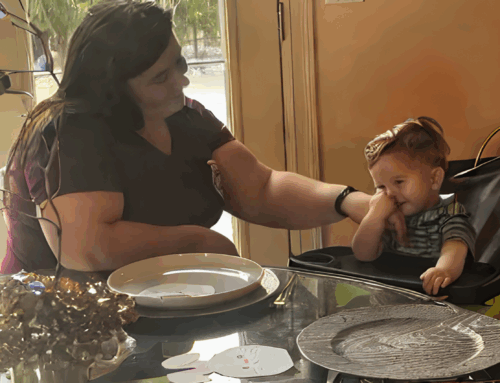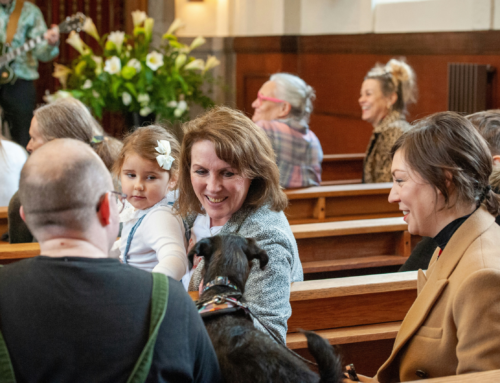Starting a new job is never easy. It may be exciting, rewarding, and a great fit, but that doesn’t mean it’s easy. As I sit here my head swirls with anticipation and expectations. My expectation of what will be involved with this role of “Manager of Pastoral Ministries” with Christian Horizons. My perception of the expectations of my colleagues and supervisor, Dr. Neil Cudney. More than anything, the expectations I have for myself: What I hope to accomplish, the connections I hope to make, the impact I hope to have. Then comes the thought: “What if I fail to live up to these expectations?”
I am drawn back to a time two thousand years ago, when expectations were at an all-time high. I see the crowds of people milling, pushing, trying to catch a glimpse of the one to whom they were shouting “Hosanna to the Son of David! Blessed is he who comes in the name of the Lord! Hosanna in the highest!” (Matthew 21:9). “Save us, rescue us!” is what they were exclaiming with their hosannas. Their palm branches symbolized goodness and victory, a call to this ‘Son of David’ to conquer in the way his forefathers had, to destroy the enemy and re-instate an earthly Kingdom, a religious Kingdom that would give God His glory on earth.
The donkey should have been a give-away.
I think of Mary, the mother of Jesus and how many of her emotions and experiences could be related to by parents of a son or daughter with a developmental disability. She had been full of anticipation when the angel had come to her (that wasn’t a dream, right?), but there had been some challenges along the way. She had seen signs of her expectations being fulfilled, but they were so few and far between. She had prepared food for him, cleaned him when he was dirty, and generally seen him in his most human and vulnerable states.
Finally, when he was middle-aged (for the time) he had really started living up to her hopes. Others were starting to recognize that he was, in fact, gifted. He did have abilities that people didn’t give him credit for previously. Maybe she hadn’t been wrong in her hopes, in her expectations after all.
Today, when the crowds shouted, she could finally take a step back and be proud of who he had become, what he had accomplished. She could breathe a sigh of relief.

“Christ Driving Merchants From Temple” Jacob Jordaens, 1650
Then, it all started falling apart. Jesus had always acted a bit, well, odd in faith communities. Even when he was a boy he had asked so many questions (Luke 2:41-52) and lately he had taken to challenging the pharisees and teachers of the law (Matt 23:1-12). Many people were astounded, but the religious leaders hadn’t always handled it so well. This time, Jesus had gone too far. With the idea that the temple needed to be ‘cleansed’ Jesus had made quite a scene and acted out against the money-changes and the merchants. Wasn’t he supposed to be conquering the Romans? Why, then, must he make such powerful enemies with the leaders of his community? Mary wasn’t sure how she would show her face in the temple again.

Michelangelo’s Pietà (1499)
Things had certainly changed since the day of the ‘hosannas’. Jesus was now facing criminal charges, and if convicted the sentence would not be lenient. Through the trial, all of their friends started dropping away (Matt 26:31). Even their close friend Peter, who had promised to stick with them through it all, was acting as though he didn’t know them (Matt 26:69-75). Where was the support now that they had come to difficult times? Where were their friends, their community, the backing of their synagogue?
As she stood there, at the foot of the cross, she was devastated. Jesus would never be who she had thought he would be. She was crushed by the suffering he was enduring, furious at the crowds who didn’t understand, and angry at herself for believing, hoping so much. He would never live up to her expectations. How could God do this to her? So much promise, so much potential, and now, this…
The resurrection of Christ means different things to different people. To me it means the revelation of an upside-down Kingdom. One where weakness is revealed to be strength, where vulnerability and sacrifice is victory rather than defeat. It was a fracture in history where expectations were qualitatively and not quantitatively exceeded. By all outward appearances, Christ’s death was a stunning final blow to all of the hopes and expectations that were placed in him as King. In Christ’s resurrection, however, our expectations and dreams were proved to be tragically short-sighted… We would have been far too easily pleased.
As I start on this new path, then, my expectations are not to be so much defined by tasks accomplished or goals achieved as by the moments of connection with others. They are to be defined by the time taken to listen to life-stories and to hold up examples of the upside-down Kingdom at work – examples of our human weakness and frailty being used to display God’s resurrection power through us (2 Cor 12:9).
(And don’t worry, Neil – along the way I’m sure I’ll get some practical things accomplished as well)


